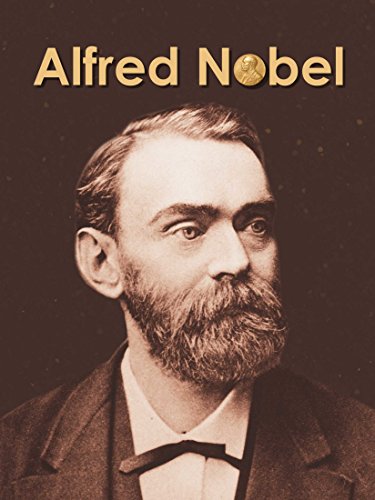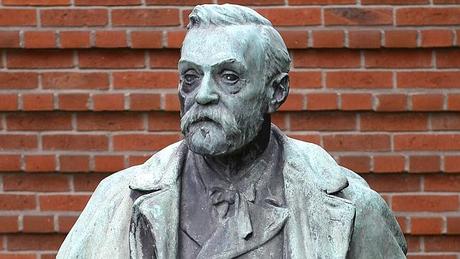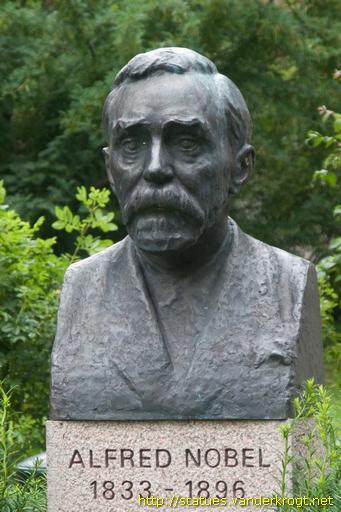Nobel Prize
 |
| nobel |
, that are awarded annually from a fund bequeathed for that purpose by the Swedish inventor and industrialist Alfred Nobel. The Nobel Prizes are widely regarded as the most prestigious awards given for intellectual achievement in the world.
in 1895, Nobel instructed that most of his fortune be set aside as a fund for the awarding of five annual prizes
in 1895, Nobel instructed that most of his fortune be set aside as a fund for the awarding of five annual prizes
 |
| Alfred Nobel |
to greatest benefit on mankind
the Nobel Prize for Physics,
the Nobel Prize for Chemistry,
the Nobel Prize for Physiology or Medicine,
the Nobel Prize for Literature,
and the Nobel Prize for Peace
. The first distribution of the prizes
took place on December 10, 1901, the fifth anniversary of Nobel’s death.
 |
| Alfred Nobel |
After Nobel’s death
the Nobel Foundation was set up to carry out the provisions of his will and to administer his funds. In his will, he had stipulated that four different institutions—three Swedish and one Norwegian—should award the prizes. From Stockholm, the Royal Swedish Academy of Sciences confers the prizes for physics, chemistry, and economics, the Karolinska Institute confers the prize for physiology or medicine, and the Swedish Academy confers the prize for literature. The Norwegian Nobel Committee based in Oslo confers the prize for peace.
The selection process
The selection process
prizewinners
The prestige of the Nobel Prize stems in part from the considerable research that goes into the selection of the prizewinners. Although the winners are announced in October and November, the selection process begins in the early autumn of the preceding year, when the prize-awarding institutions invite more than 6,000 individuals to propose, or nominate, candidates for the prizes. Some 1,000 people submit nominations for each prize, and the number of nominees usually ranges from 100 to about 250. Among those nominating are Nobel laureates, members of the prize-awarding institutions themselves; scholars active in the fields of physics, chemistry, economics, and physiology or medicine; and officials and members of diverse universities and learned academies. The respondents must supply a written proposal that details their candidates’ worthiness. Self-nomination automatically disqualifies the nominee. Prize proposals must be submitted to the Nobel Committees on or before January 31 of the award year
The prestige of the Nobel Prize stems in part from the considerable research that goes into the selection of the prizewinners. Although the winners are announced in October and November, the selection process begins in the early autumn of the preceding year, when the prize-awarding institutions invite more than 6,000 individuals to propose, or nominate, candidates for the prizes. Some 1,000 people submit nominations for each prize, and the number of nominees usually ranges from 100 to about 250. Among those nominating are Nobel laureates, members of the prize-awarding institutions themselves; scholars active in the fields of physics, chemistry, economics, and physiology or medicine; and officials and members of diverse universities and learned academies. The respondents must supply a written proposal that details their candidates’ worthiness. Self-nomination automatically disqualifies the nominee. Prize proposals must be submitted to the Nobel Committees on or before January 31 of the award year
 |
| Alfred Nobel |
The deliberations and the voting
On February 1 the six Nobel Committees—one for each prize category—start their work on the nominations received. Outside experts are frequently consulted during the process in order to help the committees determine the originality and significance of each nominee’s contribution. During September and early October the Nobel Committees have accomplished their work and submit their recommendations to the Royal Swedish Academy of Sciences and the other prize-awarding institutions. A committee’s recommendation is usually but not invariably followed. The deliberations and the voting within these institutions are secret at all stages. The final decision by the awarders must be made by November 15. Prizes may be given only to individuals, except the Peace Prize, which may also be conferred upon an institution. An individual may not be nominated posthumously, but a winner who dies before receiving the prize may be awarded it posthumously, as with Dag Hammarskjöld (for peace; 1961), Erik Axel Karlfeldt (for literature; 1931), and Ralph M. Steinman (for physiology or medicine; 2011). (Steinman was named a winner several days after his death, which was unbeknownst to the Nobel Assembly. It was decided that he would remain a Nobel laureate, since the purpose of the posthumous rule was to prevent prizes being deliberately awarded to deceased individuals.) The awards may not be appealed. Official support, whether diplomatic or political, for a certain candidate has no bearing on the award process because the prize awarders, as such, are independent of the state.
On February 1 the six Nobel Committees—one for each prize category—start their work on the nominations received. Outside experts are frequently consulted during the process in order to help the committees determine the originality and significance of each nominee’s contribution. During September and early October the Nobel Committees have accomplished their work and submit their recommendations to the Royal Swedish Academy of Sciences and the other prize-awarding institutions. A committee’s recommendation is usually but not invariably followed. The deliberations and the voting within these institutions are secret at all stages. The final decision by the awarders must be made by November 15. Prizes may be given only to individuals, except the Peace Prize, which may also be conferred upon an institution. An individual may not be nominated posthumously, but a winner who dies before receiving the prize may be awarded it posthumously, as with Dag Hammarskjöld (for peace; 1961), Erik Axel Karlfeldt (for literature; 1931), and Ralph M. Steinman (for physiology or medicine; 2011). (Steinman was named a winner several days after his death, which was unbeknownst to the Nobel Assembly. It was decided that he would remain a Nobel laureate, since the purpose of the posthumous rule was to prevent prizes being deliberately awarded to deceased individuals.) The awards may not be appealed. Official support, whether diplomatic or political, for a certain candidate has no bearing on the award process because the prize awarders, as such, are independent of the state.
 |
| Alfred Nobel |
Alfred Nobel
Alfred Nobel was born on 21 October 1833 in Stockholm, Sweden, into a family of engineers.He was a chemist, engineer, and inventor. In 1894, Nobel purchased the Bofors iron and steel mill, which he made into a major armaments manufacturer. Nobel also invented ballistite. This invention was a precursor to many smokeless military explosives, especially the British smokeless powder cordite. As a consequence of his patent claims, Nobel was eventually involved in a patent infringement lawsuit over cordite. Nobel amassed a fortune during his lifetime, with most of his wealth coming from his 355 inventions, of which dynamite is the most famous
merchant of death is dead
In 1888, Nobel was astonished to read his own obituary, titled The merchant of death is dead, in a French newspaper. As it was Alfred's brother Ludvig who had died, the obituary was eight years premature. The article disconcerted Nobel and made him apprehensive about how he would be remembered. This inspired him to change his will On 10 December 1896, Alfred Nobel died in his villa in San Remo, Italy, from a cerebral haemorrhage. He was 63 years old
Nobel wills
Nobel wrote several wills during his lifetime. , that his fortune be used to create a series of prizes for those who confer the "greatest benefit on mankind" in physics, chemistry, physiology or medicine, literature, and peace. Nobel bequeathed 94% of his total assets, 31 million SEK, to establish the five Nobel Prizes.
The Nobel Prize
Nobel wrote several wills during his lifetime. , that his fortune be used to create a series of prizes for those who confer the "greatest benefit on mankind" in physics, chemistry, physiology or medicine, literature, and peace. Nobel bequeathed 94% of his total assets, 31 million SEK, to establish the five Nobel Prizes.
The Nobel Prize
was funded by Alfred Nobel's personal fortune. According to the official sources, Alfred Nobel bequeathed from the shares 94% of his fortune to the Nobel Foundation that now forms the economic base of the Nobel Prize.
 |
| Alfred Nobel |
References







No comments:
Post a Comment